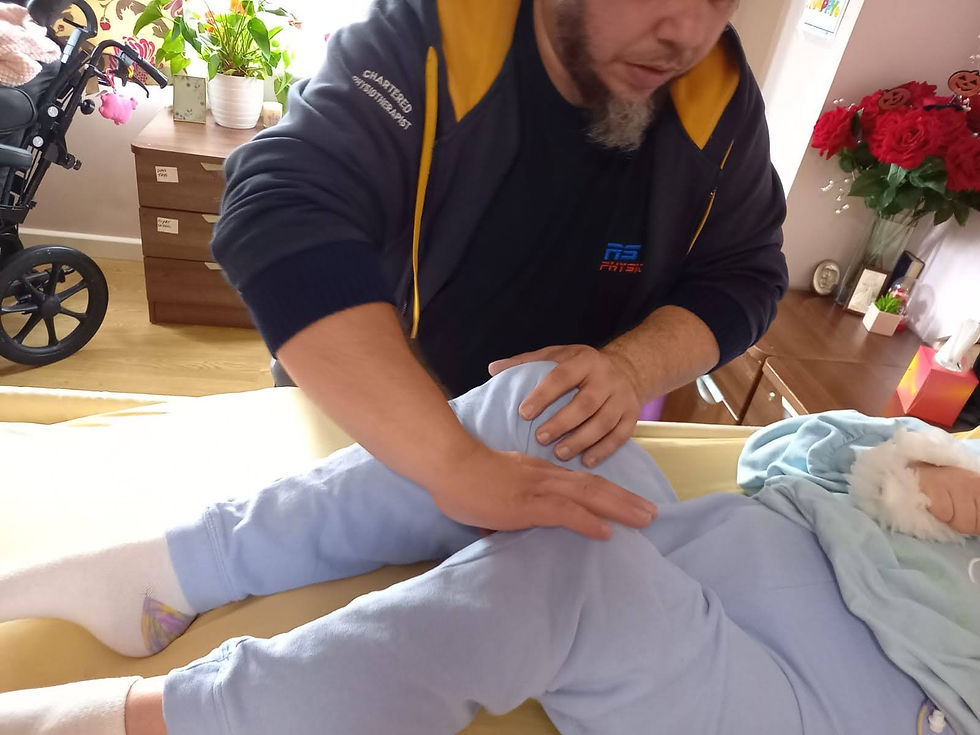Why hippocampus so important for physiotherapists?
- Pawel Ciecierski MSc Physiotherapy MCSP HCPCreg

- Mar 2, 2023
- 2 min read
Updated: Mar 6, 2023

No. The hippocampus is not a Latin term for hippo relaxing on the campsite.
The hippocampus is an important brain region for learning, memory, and spatial navigation, and its function is closely linked to physical activity and exercise.
As a result, understanding the role of the hippocampus in the brain and its relationship to physical activity can be beneficial for your therapist in a number of ways.
Studies have shown that physical exercise can have a positive impact on hippocampal function and may help to improve memory and cognitive function.
This suggests that incorporating physical activity and exercise into rehabilitation programs may be beneficial for individuals with neurological conditions that affect the hippocampus, such as stroke or traumatic brain injury.
In addition, the hippocampus is involved in spatial navigation, which is a key component of many physical rehabilitation programs.
By understanding the role of the hippocampus in navigation and spatial awareness, physiotherapists can design rehabilitation programs that incorporate spatial awareness tasks and exercises, such as obstacle courses or balance training on unstable surfaces.
Finally, the hippocampus is involved in regulating emotions and stress responses, which can have a significant impact on overall health and well-being.
Your physiotherapist can work with you to develop exercise programs that target stress reduction and promote emotional well-being, potentially improving overall health outcomes.
Overall, understanding the role of the hippocampus in the brain and its relationship to physical activity can be valuable for physiotherapists in designing effective rehabilitation programs and promoting overall health and well-being for their patients and for patients to understand why it's so important to participate in prescribed exercises.
Here are some references to support the information I provided:
Erickson, K. I., Voss, M. W., Prakash, R. S., Basak, C., Szabo, A., Chaddock, L., ... & Kramer, A. F. (2011). Exercise training increases size of hippocampus and improves memory. Proceedings of the National Academy of Sciences, 108(7), 3017-3022.
Smith, P. J., Blumenthal, J. A., Hoffman, B. M., Cooper, H., Strauman, T. A., Welsh-Bohmer, K. A., & Sherwood, A. (2010). Aerobic exercise and neurocognitive performance: a meta-analytic review of randomized controlled trials. Psychosomatic medicine, 72(3), 239-252.
Maguire, E. A., Burgess, N., Donnett, J. G., Frackowiak, R. S., Frith, C. D., & O'Keefe, J. (1998). Knowing where and getting there: a human navigation network. Science, 280(5365), 921-924.
Scharoun, S. M., & Bryden, P. J. (2014). Spatial abilities and sports: a relationship in need of further exploration. Frontiers in psychology, 5, 186.
McEwen, B. S., & Sapolsky, R. M. (1995). Stress and cognitive function. Current Opinion in Neurobiology, 5(2), 205-216.
Tsigos, C., & Chrousos, G. P. (2002). Hypothalamic-pituitary-adrenal axis, neuroendocrine factors and stress. Journal of psychosomatic research, 53(4), 865-871.





Comments